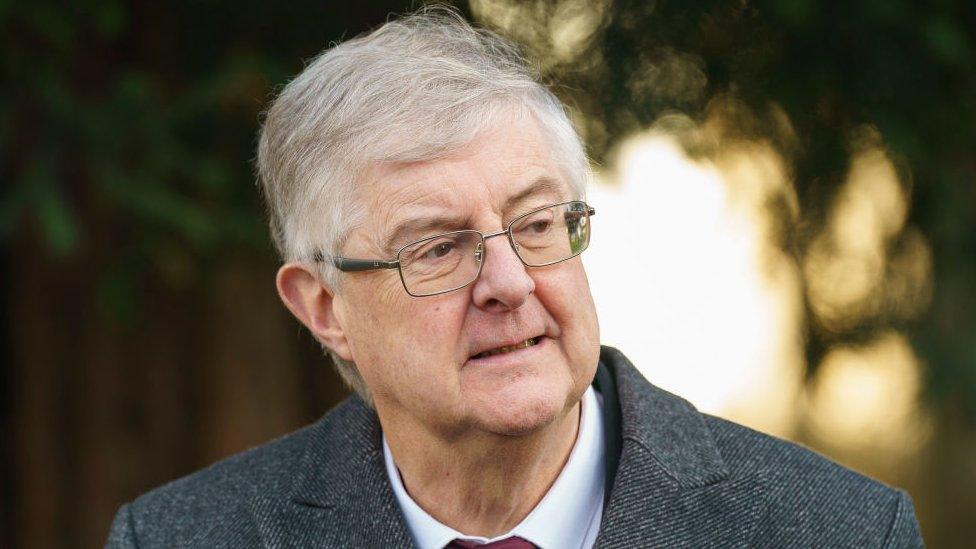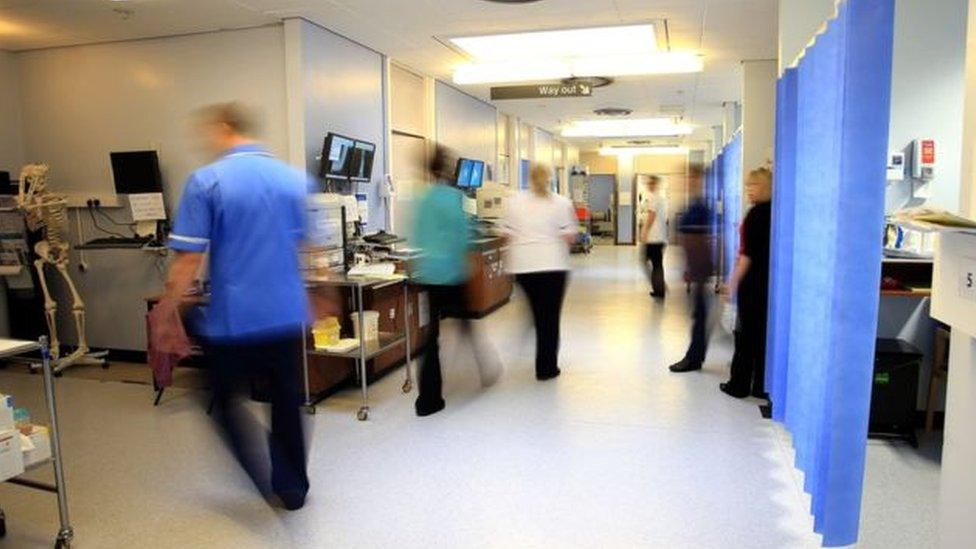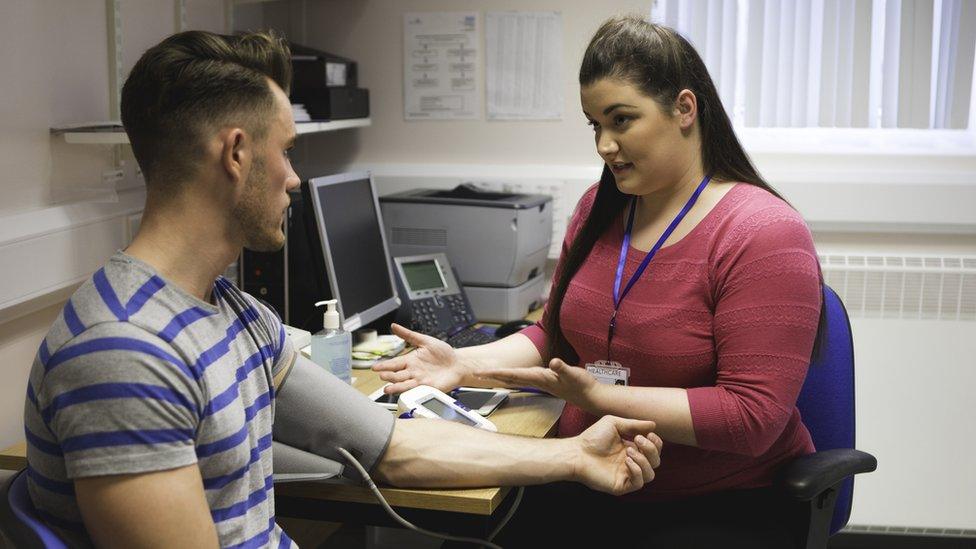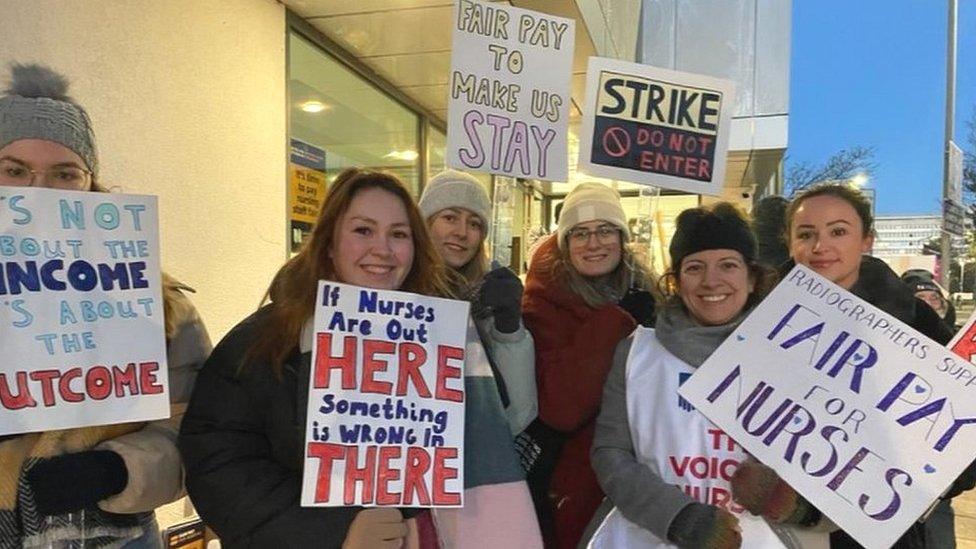NHS Wales: Drakeford says alcohol not staff to blame for A&E waits
- Published

Mark Drakeford said NHS staff dealing with avoidable problems get wrongly blamed for A&E waits
Hospital staff treating "shockingly high" numbers of people who have drunk too much get unfairly blamed for long A&E waits, the first minister has said.
Mark Drakeford said medical workers spent too much time responding to problems that "need never have happened".
He said staff then seemed to be blamed when pressures become hard to manage.
Mr Drakeford urged people to do all they could to avoid needing NHS help for "reasons that were avoidable".
The first minister emphasised he was not just thinking about alcohol misuse, but also the "obesity agenda" and the "diabetes agenda".
He was speaking at the three-times-a-year first minister's scrutiny session, which was held in Wrexham, where he faced questions from chairpersons of Senedd committees.
Before making his comments, Mr Drakeford said Betsi Cadwaladr health board had called for the population to do more to "make sure that harms that genuinely can be avoided are avoided".
He said: "When I read stuff in the media about difficulties in A&E departments, and the length of time people are having to wait, and then you look at the percentage of people who end up in an A&E department because they have drunk too much, it is shockingly high.
"People who we rely on to work in A&E departments spend an awful lot of their time responding to harm that need never have happened.
"It's the people who work there who seem to get the blame when those pressures become very hard to manage."

The first minister said "responsibility is shared amongst everybody"
Mr Drakeford stressed he did not want to blame anybody but added "responsibility is shared amongst everybody".
He said if society wanted the NHS to continue responding to those who fell ill for reasons beyond their control it must relieve it of avoidable pressure.
"It is a partnership between the service and the population it serves, in which the population doesn't believe that we can all behave as we like, and the minute it all goes wrong it becomes the responsibility of somebody else," he said.
- Published6 July 2023

- Published6 July 2023

- Published5 July 2023
